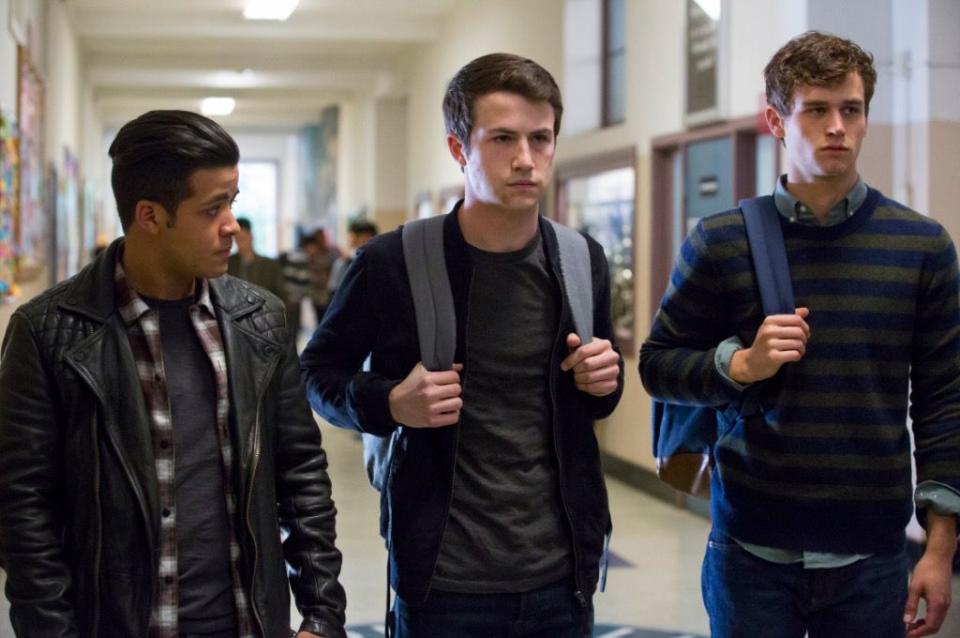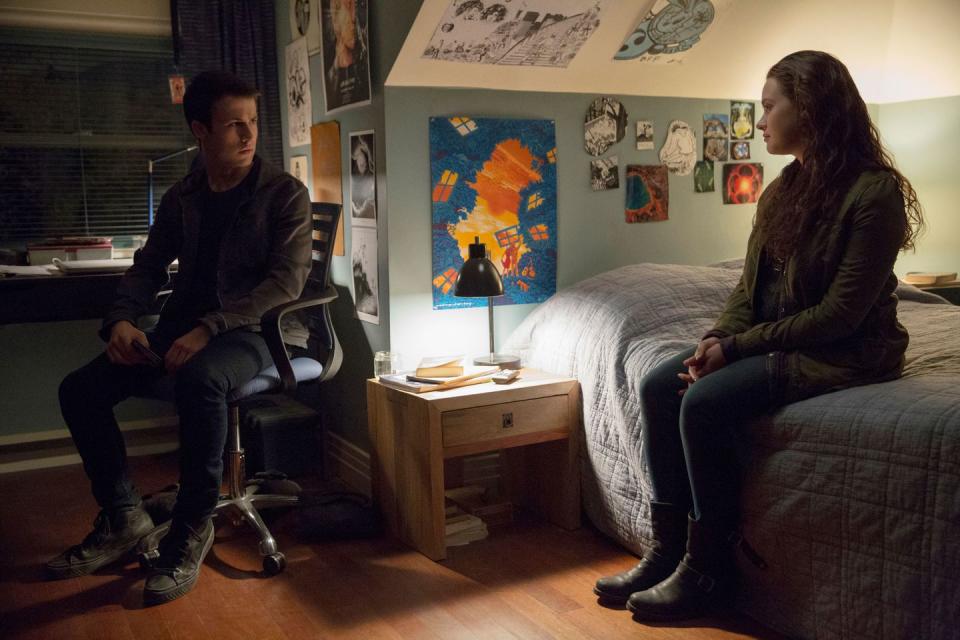13 Reasons Why's second season is even more problematic

Warning: This article contains mild spoilers for 13 Reasons Why season 2
It's been a year since the first season of teen suicide drama 13 Reasons Why was released on Netflix. Based on Jay Asher's novel, the show did not shy away from the difficult themes of bullying, sexual assault and self-harm and was unsurprisingly met with controversy on its release.
Is the idea of leaving behind some retro tapes for the people who have wronged you somehow cool and appealing to young viewers who feel invisible in the school halls? Was the horrific death sequence in the show's final episode unnecessarily explicit and played for shock value? These were the questions being asked.
Five months after the tragic death of Hannah Baker (Katherine Langford), we find ourselves back at Liberty High for season two, and it's a relentlessly bleak place to be.
Related: 13 Reasons Why season 2 review: Clumsy plotting and a mad twist let down a stellar cast
With students still wracked with guilt and grief following the events of season one, the familiar faces drift about listlessly between classes and attending the ongoing trial that Olivia Baker (Kate Walsh) has filed against the school. Everyone is in personal turmoil. It's a place where a taped confession from a rapist doesn't stop him from approaching you in the corridor. It's a place where the school's pastoral care seems to be nil. It's a place that needs to justify the 13 hours we're about to spend in it.
So why are we back? That's a very good question, because if you thought season one was problematic, just you wait.
The tapes that Hannah recorded for her fellow students in season one were difficult to hear, because while on the one hand the loss of a beautiful young woman was never far from our minds, neither was the thought that perhaps this is the most upsetting and unique form of torture ever displayed in a teen drama.

Suicide is devastating, and as Tony (Christian Navarro) himself says "you never really know what's going to hit how", so there is absolutely no 'too big' or 'too small' when it comes to things that affect people… but your heart still bled for the high-schoolers whose interactions with Hannah involved a misunderstanding or conflict that most of us will recognise from those tumultuous teenage years.
While some of the characters deserved to be held to account for their unforgivable actions, others hurt Hannah accidentally in the course of navigating their own personal problems and did not deserve to be led on a guilt-fuelled goose chase that would haunt them into their later years. You only had to see the state of Clay (Dylan Minnette), our ultimately well-meaning protagonist, to understand the effect of such blame. And that's saying nothing of Alex (Miles Heizer), who is driven to the same tragic act in the wake of Hannah's taped suicide note.

It's tricky. On the one hand, season one played out as a lesson in being kind and, on the other, it functioned as a warning that every small mistake in your school years can and will affect you forever. Was it a toxic message? Quite possibly.
So the tapes have now been heard. They were a tragic picture of a girl who never had the chance to grow past the high-school issues that many of us were able to see grow smaller and smaller with retrospect. (Of course, the sexual assault she experienced is not included in the category of a high-school issue that fades in the rear-view mirror). She never got to see the big picture, though; that it's never too late to extract yourself from a damaging environment and start a different life.
Season two takes a look at that bigger picture, literally. We are no longer led by Hannah's narration, rather the narrative is shaped around the testimonies of the classmates and the previously unseen photographs that are being unearthed as legal proceedings unfold. The pictures indicate that Hannah may not have been alone in her plight.

There is a powerful moment in the season's penultimate episode – a rallying cry of sorts that insists no one is alone – but the season is so involved in its own angst and pain that you have to endure 11 hours of unremitting hopelessness to get this far. The characters continue to believe that high school is the be-all and end-all of their lives, and while it can feel that way for everyone, it's worrying to think that this message may transmit to young viewers in the midst of their own high-school (and exam!) experiences.
Is the show doing enough to reassure young viewers that there is a world beyond the pain of growing up? Not at all. Its idea of presenting a 'bigger picture' is solely showing that others are suffering, not that there can be a positive future after trauma. There is not nearly enough hope, for the characters or the audience.
Season two rehashes past events, shoe-horning in new findings around the edges of the pre-existing timeline. Hannah is also now a ghost who talks to Clay, and the absence of her voiceover makes this season feel directionless at times.
But perhaps we should be more concerned about the utter bleakness on display. Unrelenting depression seems to shroud the season, briefly lifted only to collapse back down as the show's thirteenth episode, once again, delivers a deeply disturbing scene of suffering.
The show is very careful to stress that there are resources available at their website should you need help. If only they considered just a tiny glimpse of a brighter future for any of the characters to save the show from its utter hopelessness.
13 Reasons Why season two is available now on Netflix.
Readers affected by the issues raised in this story are encouraged to contact Samaritans free on 116 123 (www.samaritans.org) or Mind on 0300 123 3393 (www.mind.org.uk). Readers in the US are encouraged to visit mentalhealth.gov or the American Foundation for Suicide Prevention.
You Might Also Like

 Yahoo News
Yahoo News 
